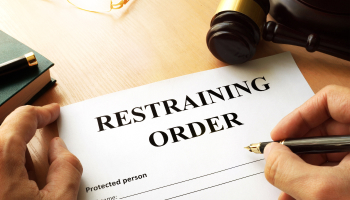Start Again
Experienced San Jose Family Lawyers
San Jose Family Lawyers Protecting Your Interests
Divorce and other family law matters can be highly stressful even if the spouses are parting by mutual agreement. If you have a concern related to this area of the law, you should consult a skillful, experienced attorney. Mello & Pickering is a family law firm that was established by Jennifer Mello and Traci Pickering, attorneys who have a genuine desire to assist people in achieving clarity and resolution in family law matters. Jennifer Mello and Traci Pickering are each Certified Family Law Specialists, certified by the State Bar of California Board of Legal Specialization.
Divorce
In California, you can get a divorce whether or not your spouse wants a divorce, and the state is a no-fault state, which means that you can obtain a divorce even if neither spouse is to blame for the marriage ending. You must meet certain requirements to obtain a divorce in California. If you are the spouse asking for a divorce, you must have been a California resident for a minimum of six months and a resident in the county where you are filing for a divorce for a minimum of three months. After a spouse sues for divorce and serves the petition on his or her spouse, the petitioner spouse must wait at least six months for official dissolution. Once served, the respondent spouse has 30 days to respond. Divorce petitions also may ask the court to issue orders related to child custody, child support, spousal support, restraining orders, or property division. Our family attorneys can help San Jose residents make sure that they file or respond to a petition appropriately.
Legal Separation
Sometimes spouses would rather legally separate than get divorced. For example, a spouse may wish to stay on the other spouse’s health insurance, or the couple may not believe in divorce due to their religion. In other situations, a couple would prefer to try a legal separation while determining whether to dissolve their marriage. This allows the liabilities and finances of each spouse to stay legally separate. However, because the marriage has not been terminated, you cannot marry someone else if you have obtained a legal separation from your spouse, rather than a divorce. Unlike with a divorce, there are no residency requirements to file a petition for a legal separation.
Custody and Visitation
Some of the most challenging issues that may arise during a divorce involve child custody and visitation. There are two kinds of custody in California: legal custody and physical custody. Legal custody allows a parent to make important decisions about medical care, education, lifestyle, and well-being. Often, parents are awarded joint legal custody, but under some circumstances, a parent may petition for sole legal custody, such that only he or she can make those important decisions. Physical custody refers to where a child primarily lives. A parent who does not have custody may have a visitation schedule that provides places and times for visitation. Our San Jose family attorneys can help you devise an appropriate visitation schedule. The court is guided by the welfare, safety, and health of the children and the principle that children benefit from continuing and frequent contact with both of their parents.
Child Support
Child support may be ordered by the court when a couple divorces, files for legal separation, or has their marriage annulled. You can ask for child support even if the other parent and you were not married when the child was conceived, but you would first need to establish paternity. Sometimes child support is ordered when a restraining order has been imposed on one spouse, due to domestic violence. Although a family law judge or commissioner has the authority to decide how much child support to award, the California Child Support Guidelines are presumed to provide the appropriate amount of support.
Spousal Support
Spousal support is also known as alimony in California. The court may order one spouse to pay another spouse alimony when they are divorcing or separating. The spousal support is meant to make sure that the divorce does not unfairly reduce the economic condition of the spouse earning less money. The judge may issue a temporary spousal support order while the divorce terms are being determined. The length of the marriage may determine the length of the court’s jurisdiction to award spousal support.
Domestic Violence
Domestic violence can seriously harm families, and it may have consequences during a divorce, as our San Jose family lawyers can explain. Domestic violence includes intentionally trying to cause bodily injuries or sexual assault, threatening others with the possibility of immediate bodily harm, and other conduct, such as stalking or harassment. Domestic Violence is abuse perpetrated among spouses, ex-spouses, people who live together, people who formerly lived together, blood relatives, relatives by marriage, co-parents or people who have kids together, and people who are dating or engaged. California courts take domestic violence into account when making determinations about child custody and visitation.
Restraining Orders
A victim may get a protective order or restraining order protect themselves from future to domestic violence. There are various types of these orders. For example, a temporary restraining order would last only until an evidentiary hearing can be held. For another example, there are exclusive possession orders in which an abuser is ordered to leave the home and stay away from it, such that the victim has exclusive possession of the home at least temporarily. Restraining orders can also mandate other terms, such as requiring the abuser to pay child support or pay for the victim’s medical costs.
Property Division
When it comes to property division, California is a community property state. Unless there is a premarital or postmarital agreement to some other effect, the marital estate is presumed to be community property. Separate property claims (such as inheritance) may be used to rebut this presumption. However, this may not mean that everything will be split exactly in half. Instead, there may be different ways to distribute marital assets, such that each spouse winds up with the same overall value.
Grandparent Rights
Grandparents have the capacity to request visitation with their grandchildren through a court. They can ask for visitation if there is already custody litigation pending, such as when the parents are divorcing. Moreover, they can ask for visitation when there is no other family law matter pending. As with child custody, the court will look at the best interests of the child. Visitation can only be ordered if there is a preexisting bond between a child and a grandparent, such that visitation is in the child’s best interests, and the court will balance the child’s interest in visitation against the parents’ right to exercise their parental authority.
Consult an Experienced Family Lawyer in the San Jose Area
Family law matters can be challenging. Decisions made during a divorce can affect the lives of family members for many years to come. If you want to obtain a divorce or are going through another family law matter, you can consult Mello & Pickering, LLP. We offer discounted consultations to prospective clients. Call us at (408) 288-7800 or contact us via our online form.
Practice Areas
Client Reviews
Thank you all for the exceptional personal service. I have the utmost gratitude for everything that you do.
Thank you, you've been fantastic through the entire process. Would definitely refer you to others.
THANK YOU!!!!! You made my divorce very easy.
You were very well-spoken, well-prepared, and amazing thinking on your feet. Calm and professional. I was impressed. Thank you.
Thanks again for all of your support and terrific work. It is hard to find a good lawyer that looks after their client and truly cares about them and their children. I truly believe that you have my best interest at heart.
Contact Us
- 1 Call for Consultation
- 2 50+ Years of Combined Experience
- 3 *Certified Family Law Specialists
Fill out the contact form or call us at (408) 288-7800 to schedule your consultation.
Leave Us a Message
We Accept the Following Payment Methods
























